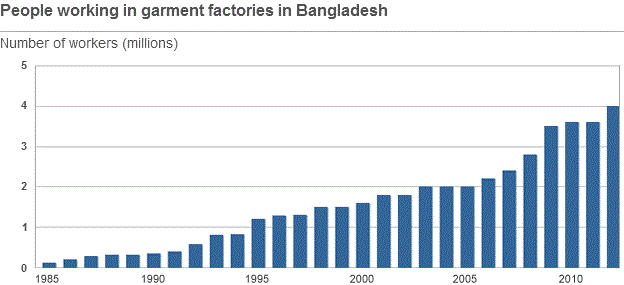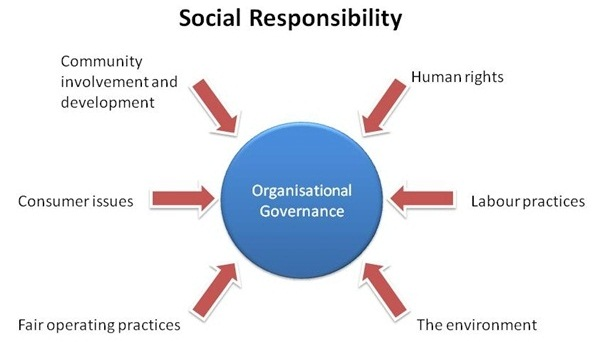Multinational Corporation Assignment: Advantages For Firms
Question
Task: Develop a multinational corporation assignment critically evaluating the role of multinational corporations in the context of less developed and developing countries.
Answer
Introduction
As per the investigation conducted in this multinational corporation assignment, multinational corporations have been observed to have many benefits as well as drawbacks with reference to the underdeveloped and developing countries. The corporations may have managed to secure international recognition for their brands, but this also comes at major costs to the local communities and environments (Zheng & Lamond 2010). With this in mind, today, most multinational corporations are expected to contribute directly towards environmental and social needs, thus improving the multinational corporation contribution and reputation in the public’s eye. Unlike the past, when the multinational corporation’s contributions would go unnoticed, today, the public is willing to speak up and question a corporation’s contributions. The study developed within this multinational corporation assignment mentions that the internet and social media has also helped create considerable amounts of awareness and helped regulate multinational corporations operations and contributions towards benefiting the environment and communities where they are established. Investments made by multinational corporations in underdeveloped and developed nations are welcomed by many since they bring along many benefits but along the benefits also some drawbacks. Both requiring to be carefully evaluated to determine the brand's contribution towards the economy, environment and local populations and only after these evaluations can help the organization true contribution is established.
Beneficial contributions of multinational corporations to a nation
Multination corporations have been noted to bring along major benefits to underdevelop and developing countries. Reduced unemployment, job-creating, skill development and improved general income generation strategies are all major benefits outlined in the multinational corporation assignment of inviting multinational corporation investment to a country (Halme et al. 2012). Multinational corporation investment in every country plays a huge role in its development; thus, it’s critical to invite the corporation to any economy.
Job creation/ reduced unemployment
The biggest benefit of any industry or business investing in a region or country stated herein the multinational corporation assignment is its ability to create jobs and reduce unemployment rates. Unemployment has been sighted as a major concern in most underdeveloped and developing economies due to the lack of skills and capital to start small business ventures (Jamal 2011). It leaves the local residents mainly dependent on employment to generate income, and most are heavily reliant on external investors, business people and multinational companies to establish businesses and industries that would hire the labour. In most underdeveloped nations, over 60% of the working population are reliant on direct or indirect employment from multinational corporations.
Skill development
The readings considered to develop this multinational corporation assignment illustrates that the exposure to employment will also generally result in the labour forces developing and perfecting their skills which help make them more independent and less reliant on one form of employment. A wider verity of skills results in an individual developing more confidence and being capable of securing a wider variety of jobs from different industries. As more Multinational Corporation invests in a nation, the workforce is exposed to a wider verity of skills which makes them more independent and capable of generating more income. The concept of skill development mentioned in the multinational corporation assignment has been closely associated to increased income generation, and as the individual perfects a wider verity of skills, they are capable of generating higher amounts of income. Skill development is also closely linked to promoting labour class towards graduating to begin their own small skilled businesses (Lindsay et al. 2012). The skilled labour gradually grows confident in their work and understand the job requirements, thus allowing many to venture into beginning small skill businesses later when they leave or lose their jobs. Multinational corporations have been identified to promote self-employment through skill development which reduced long term reliance on employment.
Income generation strategies
Multinational corporations will in many situations, invest in a nation due to the cheap labour cost, but as the labour grows more experienced and skilled, they gradually begin demanding increased pay scales. It is because many skilled employees will learn a skill and realize they can use it to begin generating income, automatically prompting them to begin asking for pay hikes. The increasing number of industries being developed in each country is also contributing to increasing pay scales as competitors offer higher pay scales to attract skilled workers. It is also noted herein the multinational corporation assignment that competition, as well as skill development and perfection, are major contributors towards increased income generation and gradually assist a skilled professional in establishing and determining their strengths and weaknesses which can then be used to gradually increase their income (Mayer 2000). Many skilled professionals will also use the opportunity to work with the corporation and industries to perfect their skills and gather experience after which they would gradually move on to starting their own small income generation ventures which they would gradually develop and expand over time.
Generation of foreign exchange
Another major benefit outlined in the context of multinational corporation assignment that is linked to Multinational Corporation and industrial investment is the ability for the industry to begin producing an export quality product which would help generate foreign exchange. Foreign exchange earnings and generation is vital for any underdeveloped or developing economy since the economy is in many situations strained and heavily reliant on an external source of income and finance to remain sustainable (Gençay et al. 2003). Similar to any businesses dependence on consumers to purchase the products and services whereby the finances can be recirculated to reproduce more products; national economies are also reliant on foreign trade to generate foreign exchange. As per the research in this multinational corporation assignment, the benefits linked to multinational corporations and businesses are that they increase value to the product thus generating higher income as compared to the income that would be generated by simply selling the raw materials. Multinational corporation establishment also improves the nations industry and manufacturing, thus allowing for international consumers and buyers to recognize a countries production and quality delivery potential. It automatically results in increasing the nation’s exposure to the international markets and consumer, which gradually increases the number of interested investors and buyers for products and services manufactured in the nation.
What are the major drawbacks linked to multinational corporation investment in regards to the case scenario of multinational corporation assignment?
Every industry that attracts benefits is also noted to have its drawbacks and fail to discuss some of the drawbacks linked to multination corporations would be depriving the investor and public. While MNC attracts a large number of obvious benefits, they have also been identified to pose some major concerns linked to labour exploitation and environmental issues. While the list is long, these two have been noted to be the most alarming and requiring urgent intervention to prevent further damage.
Labour exploitation
Labour exploitation is one of the major drawbacks illustrated in the multinational corporation assignment. Major corporate companies like Nestle and major supply chains like Wal-Mart have been observed to exploit labour by moving their manufacturing units to nations offering cheaper labour. They also prefer a nation which does not have strict or clear labour laws in place, which prevents the labour from raising any form of complaint against the company. Those who dare to raise questions are simply replaced with other waiting in line to take the position (Hurn 2012). The most major multinational corporation has been linked to promoting labour exploitation, and while most publicly denounce this, they continue exploiting labour using subsidiary companies which carry a different brand name. Wal-Mart is an expert at this, whereby it funds the setting up of smaller manufacturing units in third world countries using different brand names to avoid implicating the main brand name Wal-Mart to the labour exploitation claims.

Uncontrolled environmental degradation
Shell, Nestle, Cadbury, and many other multinational corporations have also been identified to promote environmental degradation through different practices. For oil companies like Shell and BP, the effects are seen in the form of oil spills while for consumer product manufacturer contribute to deforestation and lack of proper packaging waste management and toxic waste disposal. Each industry has its negative effects on the environment and societies but addressing them is more important to ensure the damage is reversed, slowed or stopped (Haller 2009).
The role played by Corporate Social Responsibility.
With both benefits and drawbacks linked to multinational competition investment in underdeveloped and developing nations exposed, most of the companies are expected to participate in Corporate Social Responsibility. This is very important since the corporation is expected to address their contributions towards environmental and social concerns (Windsor 2006). These require to be linked directly and indirectly to the corporation and must be able to address the major concerns affecting the environment and societies surrounding the industries or factories. With the international community, internet and social media now interconnecting the entire world, failing to address these concerns will only result in greatly affecting the corporates reputation leading to global denial and avoidance of the brand's products. So makes it vital for each of the industries to attend to their corporate social responsibility if they are to retain their reputation and market position.

Conclusion
The above discussion on multinational corporation assignment concludes that multinational corporates investment is critical for every underdeveloped or developing nation since it helps introduce a source of income generation and most of all, it helps labour build their skills. Skill development will automatically result in gradually improving an individual’s confidence and ability to generate more income since they gradually learn more, making them more valuable to any organizations. But it’s also important for the corporate companies to consider returning to society and environment since this aspect also plays a huge role in the future development and corporate growth. In today’s competitive industry, there is no space for one-sided corporations since the public also has alternatives to turn to and get better services. As stated herein, multinational corporation assignment, failing to meet consumer, environmental and social requirement would therefore gradually result in the brand losing its reputation and customers, which would result in serious long term negative effects.
References
Gençay, R. et al., 2003. Foreign exchange trading models and market behaviour. Journal of Economic Dynamics and Control, 27(6), pp. 909–935.
Haller, S.A., 2009. The impact of multinational entry on domestic market structure and investment. Multinational corporation assignment International Review of Economics and Finance, 18(1), pp. 52–62.
Halme, M., Lindeman, S. & Linna, P., 2012. Innovation for Inclusive Business: Intrapreneurial Bricolage in Multinational Corporations. Journal of Management Studies, 49(4), pp. 743–784.
Hurn, B.J., 2012. Management of change in a multinational company. Industrial and Commercial Training, 44(1), pp. 41–46.
Jamal, M., 2011. Job Stress, Job Performance and Organizational Commitment in a Multinational Company: An Empirical Study in two Countries. International Journal of Business & Social Science, 2(20), pp. 20–29.
Lindsay, S. et al., 2012. Skill development in an employment-training program for adolescents with disabilities. Disability and Rehabilitation, 34(3), pp. 228–237.
Mayer, J., 2000. Globalization, technology transfer and skill accumulation in low-income countries. Integration The of Journal, (150).
Windsor, D., 2006. Corporate social responsibility: Three key approaches. Multinational corporation assignment Journal of Management Studies, 43(1), pp. 93–114.
Zheng, C. & Lamond, D., 2010. Organizational determinants of employee turnover for multinational companies in Asia. Asia Pacific Journal of Management, 27(3), pp. 423–443.












